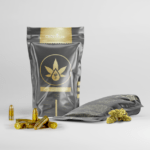Cannabinoids affect our endocannabinoid system, which keeps the body in a state of balance and homeostasis. When inflammation caused by injury or disease starts to take place in the body, CBD can give your endocannabinoid system a signal to heal faster;
CBD is found in a huge number of products today and is cited as having a positive effect on a variety of health conditions, from anxiety to chronic pain and even heart disease. The big problem with CBD is that we don’t know much about its effects yet, most research is still in its infancy and so we don’t know the full potential it has for our bodies. Let’s take a look at what the research so far says about CBD and the treatment of heart disease;
What does the research say about CBD and heart disease?
The anti-inflammatory and antioxidant properties of CBD may reduce risk factors that can lead to heart disease, such as high blood pressure. It may also be able to reduce the risk of related conditions such as stroke;
High blood pressure
High blood pressure is a major risk factor for heart disease. Blood pressure can rise when stressed, but some research suggests that a dose of CBD can reduce this rise;
Products that may be of interest to you
In a 2009 study (link to study), the rats were exposed to a stressful situation that caused their blood pressure and heart rate to increase. A dose of CBD reduced their blood pressure and heart rate.
In a 2017 study (link to study) healthy volunteers were stressed and then given a dose of CBD. CBD lowered their blood pressure compared to volunteers who were only given a placebo.
Although more research is still needed, CBD appears to be very useful in lowering blood pressure and heart rate during stress;
Analysis of 25 studies from 2017 (link to analysis), however, found that there is no evidence that CBD provides similar benefits under conditions where the subjects are not exposed to stress. If you have high blood pressure and would like to try CBD, always check with your doctor first;
Stroke
Heart disease increases the risk of stroke. Ischemic stroke occurs when a blood clot blocks blood flow to the brain. A blood vessel in the brain can also burst and cause a hemorrhagic stroke;
Research from 2010 (research link) found that CBD may help protect stroke patients from brain damage and even aid recovery by promoting brain function.
The aforementioned 2017 analysis also concluded that CBD increases blood flow in the brain during a stroke. However, it’s important to note that this analysis only focused on animal studies. Further research is needed to determine whether these findings apply to humans;
How to use CBD
If you want to use CBD to treat or prevent heart-related diseases, always consult your doctor first. Consultation is important because CBD can interact with various medications and this could cause health complications. If you decide to try CBD without consulting your doctor, always start with small doses to see how your body reacts to it. Only then can you increase the dose, but only slightly, by a maximum of 5-10 milligrams. CBD products come in many forms, from CBD oils to foods or creams. Always choose only products from reputable manufacturers to ensure that you are getting a quality product that cannot harm you;
Research on the effect of CBD on heart disease is promising, but there is very little research to confirm this effect;





















